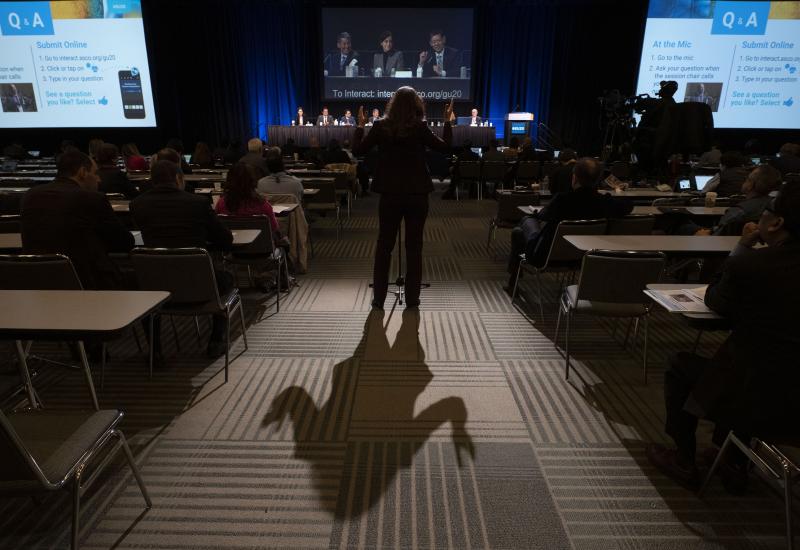
AACR 2025 – Roche sets a bar in Werner helicase inhibition

The synthetic lethality mechanism Werner helicase inhibition has tempted Roche and GSK into deals, and now the first clinical data have emerged on this approach. A phase 1 trial of Roche’s covalent project RO7589831, licensed from Vividion for $135m, has produced an overall response rate of 14% among 35 patients with microsatellite instability-high tumours (mostly colorectal cancer), AACR heard on Sunday. This doesn’t look too impressive, especially with one response unconfirmed at the cutoff date of 31 January. However, most patients had previously received checkpoint inhibitors, a tough to treat population. In addition, the update covered a range of RO7589831 doses, 150-1,000mg, with Roche still determining which to take forward. GI toxicity was common, with nausea leading to dose reduction in 14% of patients, but only 5% discontinued because of side effects, and there were no grade 4 or higher adverse events. The next readout in Werner helicase inhibition could come from Ideaya and GSK’s IDE275, with the Sylver trial set to yield data this year. This is a non-covalent project, so it will be interesting to see whether this makes a difference in terms of efficacy. Nimbus also recently took its non-covalent contender, NDI-219216, into the clinic.
Clinical-stage Werner helicase inhibitors
| Company | Trial(s) | Regimen | Data? |
|---|---|---|---|
| Roche (licensed from Vividion) | Ph1 in MSI and/or dMMR solid tumours | +/- Keytruda | Monotherapy dose-escalation data at AACR 2025: 14% ORR (responses in endometrial (3)*, CRC (1) & ovarian (1) among 35 pts) |
| Ideaya Biosciences/GSK | Ph1/2 Sylver in MSI-H or dMMR solid tumours | +/- PD-1 inhibitor | First data due in 2025 |
| Novartis | Ph1 in MSI-H or dMMR solid tumours | +/- Keytruda, +/- irinotecan | Completes May 2029 |
| Nimbus Therapeutics | Ph1/2 in solid tumours with/without MSI and/or dMMR | Monotherapy | Began Mar 2025 |
Note: *includes 1 unconfirmed response. Source: OncologyPipeline & clinicaltrials.gov.
3218













